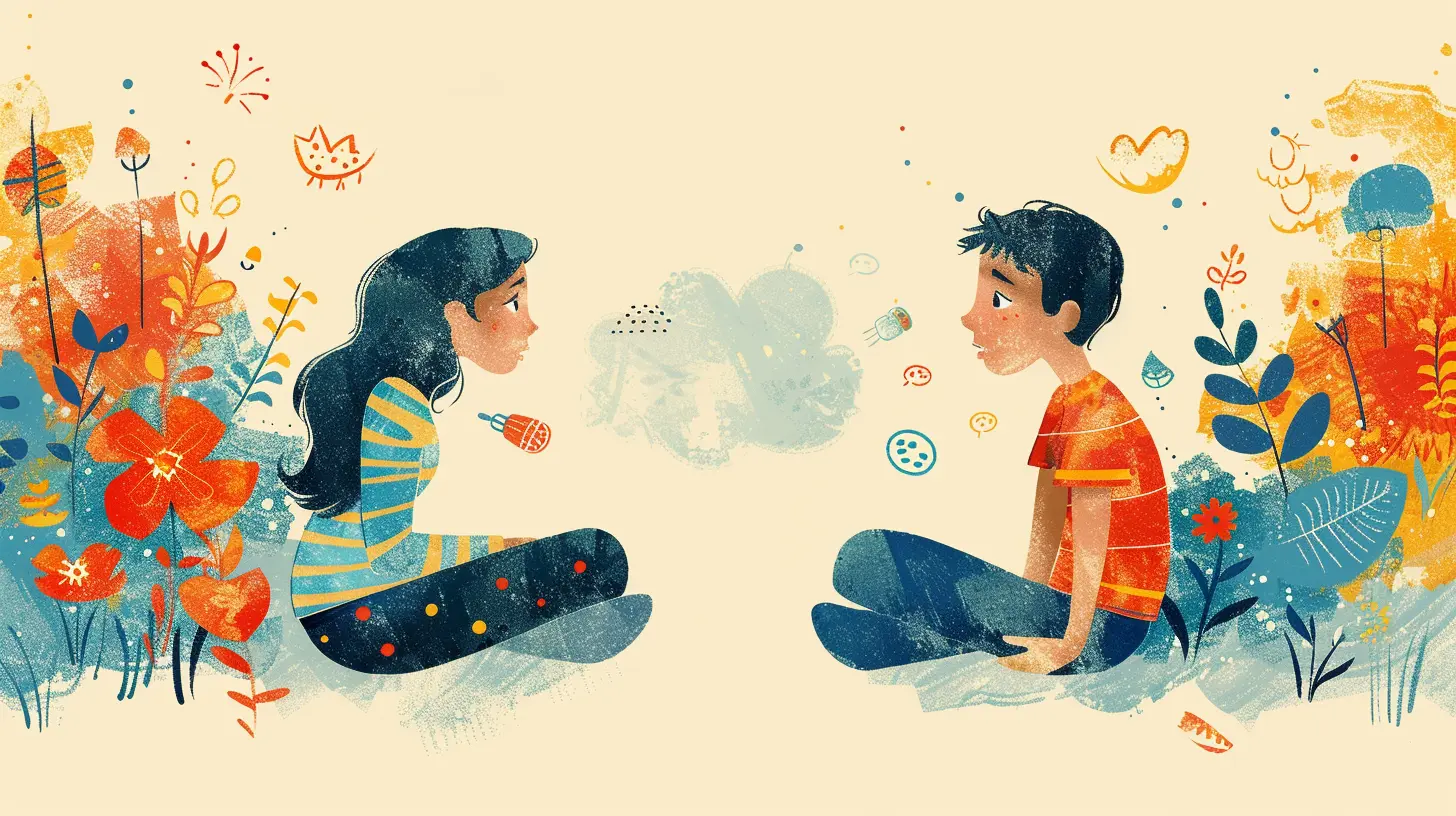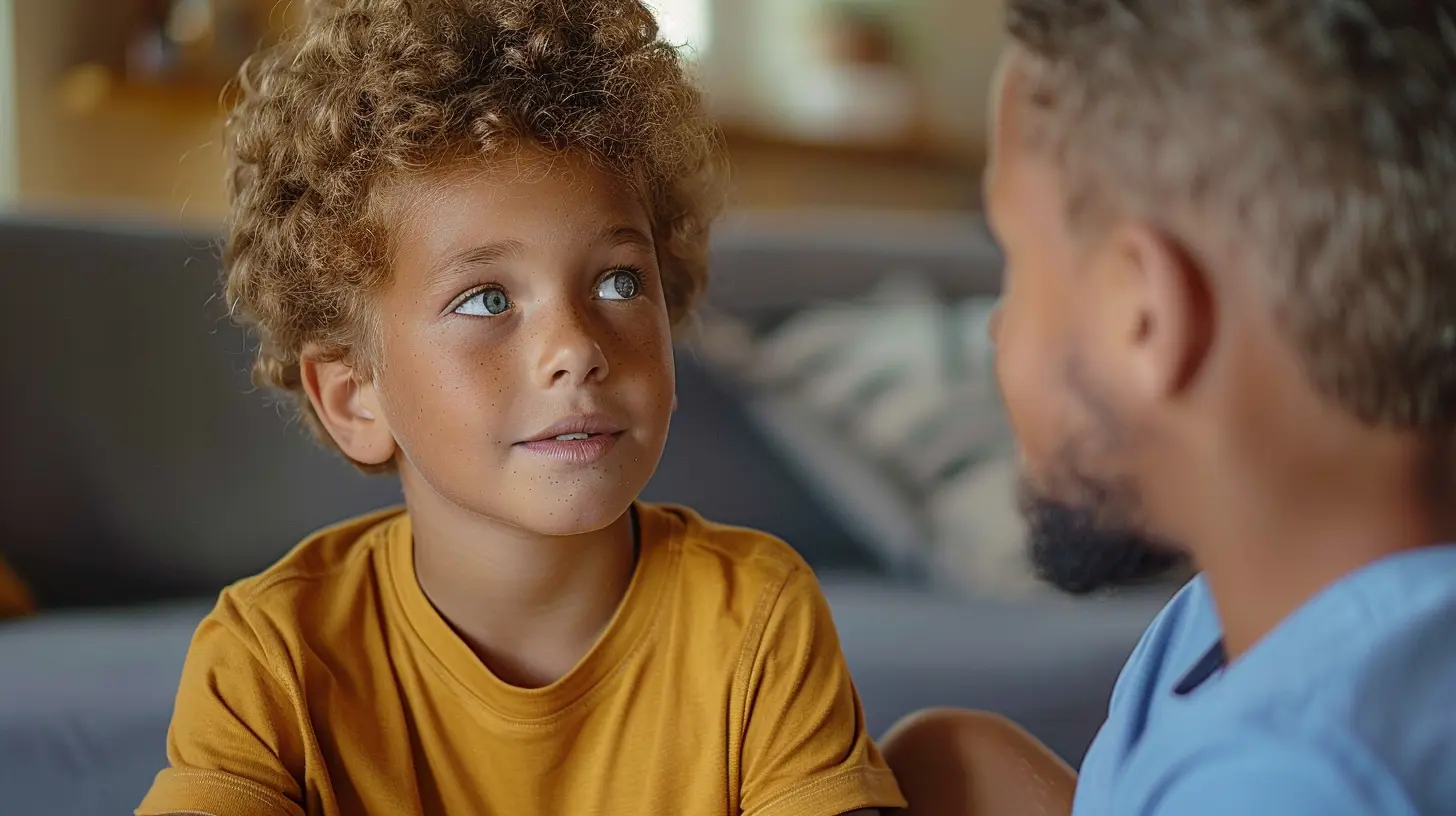The Role of Empathy in Parent-Child Conversations
22 May 2025
When was the last time you truly listened to your child—with your heart as much as your ears? Parenting is full of challenges, but one of the most valuable tools we have in our arsenal is empathy. It's the glue that strengthens the parent-child bond, making conversations more meaningful, supportive, and effective.
Many of us want our kids to feel heard and understood, but let's be honest—sometimes, life gets in the way. We’re busy, stressed, or just plain exhausted. However, making an intentional effort to lead with empathy in our conversations with our children can transform not only how they communicate but also how they feel about themselves.
So, let’s dive into why empathy is so crucial in parent-child conversations and how we can cultivate it in our daily interactions. 
What Is Empathy, and Why Does It Matter?
Empathy is more than just understanding someone’s feelings; it's about truly stepping into their shoes and seeing the world through their eyes. When we empathize with our children, we validate their emotions, showing them that what they feel matters.Think about it—how do you feel when someone dismisses your frustrations or anxieties? It stings, right? Kids feel the same way when their thoughts and emotions are brushed aside. When we respond with empathy, we create a safe space for open and honest conversations, where our kids feel comfortable expressing themselves without fear of judgment or dismissal. 
The Impact of Empathy on a Child’s Emotional Development
1. Encourages Emotional Intelligence
When children consistently experience empathy, they learn to recognize and regulate their own emotions. This helps them manage stress, navigate conflicts, and develop healthy relationships as they grow.2. Builds Trust and Security
Children thrive when they know they can come to you with anything—whether it's a scraped knee or a major life dilemma. Empathy reassures them that they’re safe, loved, and understood.3. Boosts Confidence and Self-Worth
When kids feel heard and valued, they develop a strong sense of self-worth. They’re more likely to trust their own emotions and make decisions with confidence.4. Teaches Compassion and Kindness
Empathetic parenting models kind and respectful communication. When your child sees you practicing empathy, they’re more likely to mirror that behavior in their own interactions with others.
How to Foster Empathy in Parent-Child Conversations
1. Listen Without Interrupting
We’ve all been there—our child starts talking, and we’re already formulating a response before they even finish their sentence. But real empathy starts with active listening. Give them your full attention, maintain eye contact, and resist the urge to jump in. Sometimes, they don’t need advice; they just need to be heard.2. Validate Their Feelings
Avoid phrases like "You're overreacting" or "That’s not a big deal." Instead, try saying:- "I see that you're really frustrated. That must be tough."
- "I understand why that made you upset. I would feel the same way too."
Validation doesn’t mean you always agree, but it lets your child know their feelings are real and important.
3. Use Open-Ended Questions
Instead of asking yes-or-no questions, try ones that encourage deeper conversations:- "What made you feel this way?"
- "How can I help?"
- "What do you think would make this situation better?"
These questions show that you genuinely care about their perspective and encourage them to express themselves more openly.
4. Share Your Own Feelings and Experiences
Kids benefit from knowing that even adults struggle with emotions. Sharing your own challenges—without making it about you—helps them feel less alone. You might say:- "I remember feeling the same way when I was your age."
- "Sometimes, I get frustrated too, and it helps me to take deep breaths before reacting."
This normalizes emotions and shows them healthy ways to process feelings.
5. Be Mindful of Your Tone and Body Language
Children pick up on nonverbal cues more than we realize. A dismissive tone, crossed arms, or looking distracted can make them feel like their words don’t matter. Try to maintain open body language, nod in understanding, and speak in a calm, warm tone.6. Practice Patience and Self-Regulation
Let’s be honest—kids can test our patience. But responding with frustration or anger often shuts down the conversation. When you feel your patience thinning, take deep breaths or pause before responding. Modeling self-regulation teaches your child to do the same.7. Give Them the Benefit of the Doubt
Children don’t always have the words to articulate what they’re feeling. If they’re acting out, there’s often an underlying reason—maybe they’re overwhelmed, tired, or feeling unheard. Instead of immediately reacting with discipline, take a step back and ask, “What’s really going on here?”
The Long-Term Benefits of Empathetic Communication
When we consistently foster empathy in our conversations, we’re not just improving day-to-day interactions; we’re shaping our children's future relationships and worldview. Here’s what long-term empathetic parenting can lead to:- Stronger Parent-Child Bonds: Empathy deepens trust and connection, making kids more likely to confide in you throughout their lives.
- Emotionally Resilient Kids: Children who feel understood are better equipped to handle life's challenges.
- Healthy Communication Skills: When kids grow up in an empathetic environment, they learn to communicate their needs effectively and listen to others with compassion.
- Better Problem-Solving Abilities: They become more adept at resolving conflicts constructively rather than with frustration or aggression.
Everyday Examples of Empathy in Action
Sometimes, empathy in parenting is subtle—small moments that show kids we’re on their side. Here are a few real-life examples:- Scenario 1: Your child is upset because they lost a game.
Instead of saying, “It’s just a game,” try:
_"I know you worked really hard to win. It’s frustrating when things don’t go the way we want, isn’t it?"_
- Scenario 2: Your child refuses to go to school because they’re nervous about a test.
Instead of saying, “You’ll be fine,” try:
_"I totally get why you’re feeling nervous. Tests can feel stressful. Do you want to talk about what’s worrying you the most?"_
- Scenario 3: Your child has a meltdown because they can’t get a toy they want.
Instead of saying, “Stop crying over that,” try:
_"I can see you’re really disappointed. That's a tough feeling. Let’s take a deep breath together and figure out what we can do about it."_
Small shifts in language can make a world of difference in how kids feel understood and supported.
Final Thoughts
Empathy isn’t about giving in to every demand or coddling our kids—it’s about showing them that their feelings are heard, respected, and valid. When we make the effort to truly listen and connect, we nurture emotionally intelligent, compassionate, and confident children.Next time you find yourself in a tough conversation with your child, pause and ask yourself: _Am I listening to understand, or just to respond?_ A little extra empathy can go a long way in strengthening your relationship with your child—and that’s a parenting win we can all get behind.
all images in this post were generated using AI tools
Category:
Communication With KidsAuthor:

Kelly Snow
Discussion
rate this article
3 comments
Adrian Banks
Empathy: the secret sauce that turns toddler tantrums into meaningful conversations—like magic with a sprinkle of patience!
June 4, 2025 at 4:59 AM

Kelly Snow
Absolutely! Empathy transforms challenging moments into opportunities for connection and growth. It truly is a magical ingredient in parent-child relationships.
Zephyrion Abbott
Empathy in parenting? Absolutely! It's like finding a sock in the laundry that actually matches. Sure, we might not always get it right – sometimes we respond with 'Because I said so!' – but a little understanding goes a long way. Just remember: even toddlers have their own 'feelings' department!
May 25, 2025 at 3:45 PM

Kelly Snow
Thanks for the insightful analogy! Empathy truly helps parents connect with their children on a deeper level, making communication more meaningful.
Echo Shaffer
Thank you for this insightful article! It's so important to remember that empathy creates a safe space for our children to express themselves. By actively listening and validating their feelings, we not only strengthen our bond but also teach them invaluable communication skills they’ll carry into their future relationships.
May 24, 2025 at 2:22 PM

Kelly Snow
Thank you for your thoughtful comment! I'm glad you found the article insightful. Empathy truly is key to fostering strong connections and effective communication in our children's lives.



